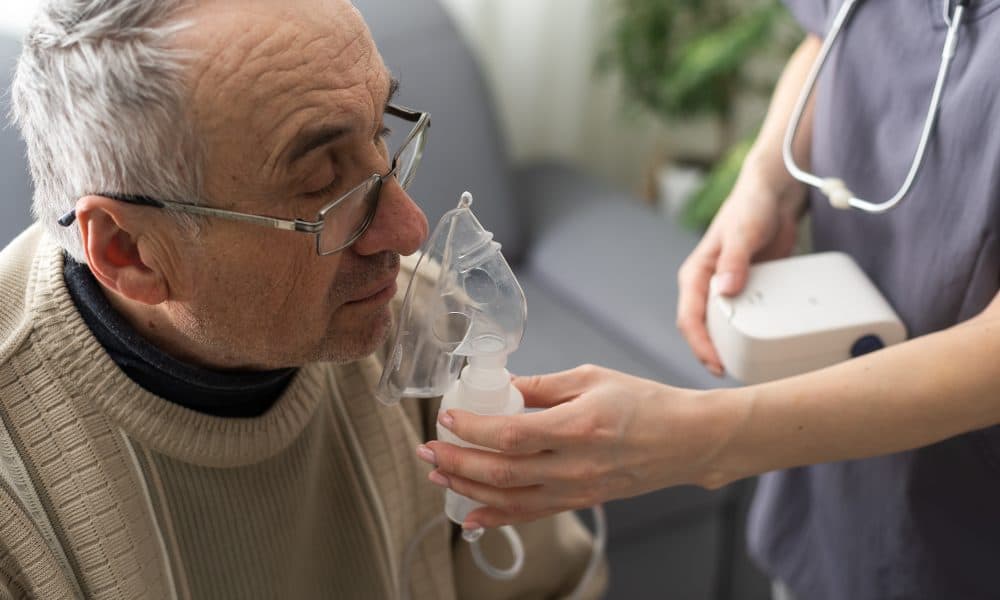Navigating the future of health information innovation in uncertain times – HIMSS 2025 report

Hal Wolf on AI, cybersecurity, and the urgency of health system transformation; in an exclusive report from HIMSS25 by Gil Bashe, editor-in-chief of Medika Life, FINN Partners’ chair of global health and purpose, and a Health Tech World correspondent.
The HIMSS25 Global Health Conference & Exhibition in Las Vegas, with almost 30,000 attendees, packed the Venetian’s conference and speaker rooms—the casinos remained empty. With the Federal government weighing hospital system budget reductions, health system leaders, innovators, and IT pros aren’t interested in playing their fortunes at the tables; they seek practical solutions to how information can turn into the gold of improved care access and operational excellence.
If any leader can help the sector weather uncertain policies and financial challenges, HIMSS President and CEO Hal Wolf (pictured meeting the press above) is the right captain to steer the industry ship. Today Wolf met with the global press corps attending HIMSS for a candid exchange on the pressing challenges confronting U.S. and global health systems.
Wolf emphasised the critical importance of the conference’s four central themes: digital health transformation, artificial intelligence (AI), cybersecurity, and workforce development. For HIMSS, these four points are central to navigating the health landscape, especially amid economic constraints and evolving technological demands.
Digital Health Transformation: Navigating Economic Pressures
Hal reaffirms what most people are thinking. The health sector is grappling with economic pressures from inflation, supply chain disruptions, and the imperative to enhance operational efficiency. But what is occupying their minds is the looming budget reductions resulting from reducing support for life-sustaining clinical research to support for Medicaid.
The challenges necessitate a comprehensive digital transformation to maintain financial sustainability and quality care. Wolf underscores that organisations must adopt digital tools to streamline processes, reduce costs, and improve patient outcomes. He notes that this HIMSS25 conference remains dedicated to exploring practical implementations of digital health solutions, moving beyond theoretical discussions to actionable strategies.
This year’s conference highlights the significance of interoperability and data exchange in achieving seamless care delivery. Wolf also emphasises that collaboration among providers, payers, and policymakers is crucial to overcoming financial and operational challenges and building an integrated health system.
However, Wolf also emphasises that AI is a must-understand technology that elevates patient care, access, and operations.
Artificial Intelligence: From Hype to Practical Application
Artificial intelligence continues to be a transformative force in health, with discussions at HIMSS25 shifting from theoretical possibilities to practical applications. Wolf underscores that AI is now deployed in clinical settings to augment – not replace – physician judgment, enhance predictive analytics for patient risk stratification and optimise resource allocation. He stressed the importance of responsible AI implementation, ensuring that these technologies support clinicians rather than replace them.
The conference is a big tent showcase of real-world examples of AI integration, demonstrating its potential to improve diagnostic accuracy, personalize treatment plans, and streamline administrative tasks. Wolf pointed out that the focus is now on leveraging AI to address specific operational challenges, thereby enhancing the efficiency and effectiveness of healthcare delivery.
Cybersecurity: Safeguarding Health Information
In an era where health organizations face increasingly sophisticated cyber threats, cybersecurity is the top priority. Wolf emphasises protecting patient data and ensuring the integrity of health information systems, which are fundamental to maintaining trust in health institutions.
The HIMSS25 conference is dedicating significant attention to cybersecurity strategies, including implementing zero-trust architectures and compliance with evolving international privacy regulations.
Discussions also center around privacy-preserving technologies for health data sharing, highlighting the need for solutions that enable secure collaboration without compromising patient confidentiality. Undoubtedly, as health becomes more digitized, cybersecurity measures are essential to protect against data breaches and cyberattacks that could disrupt care delivery.
Preparing for the Future
The rapid evolution of health technology necessitates a workforce skilled at navigating new tools and systems. Wolf highlights how workforce development is crucial to ensuring health professionals have the know-how to embrace digital transformation. The conference features sessions on upskilling clinicians, integrating digital literacy into medical education, and fostering a culture of continuous learning within health organisations.
In its inaugural year, the HIMSS EMERGE Innovation Experience is a pivotal platform for start-ups driving health innovation, offering “emerging” companies the chance to connect directly with industry leaders, investors and decision-makers. In an era where digital transformation is reshaping healthcare, the convergence of start-up innovators and executives from mega-hospital systems at the same event is essential.
These meetings bridge the gap between groundbreaking ideas and real-world implementation, fostering collaborations that can accelerate the adoption of AI, digital therapeutics, cybersecurity solutions, and workforce development strategies. By bringing together the agility of start-ups and the scale of major health systems, HIMSS EMERGE – even in its first gathering – has become a champion for health innovators to transform care delivery, enhance patient outcomes, and solve some of the sector’s more pressing challenges.
A Unified Approach to Health-Sector Challenges
Hal Wolf’s insights at the HIMSS25 press conference reinforce the interconnectedness of digital health transformation, AI, cybersecurity, and workforce development in addressing the health ecosystems’ global challenges.
By speaking to the “White Elephant” in the room on these issues, Wolf once again guides health organisations in navigating economic pressures, harnessing technological advancements responsibly, protecting health information, and cultivating a workforce prepared for the future.
Wolf calls for a unified approach, leveraging collaboration and innovation to drive meaningful improvements in care delivery and patient outcomes. HIMSS members are in good hands.

Gil Bashe (left) with HIMSS president and CEO Hal Wolf





